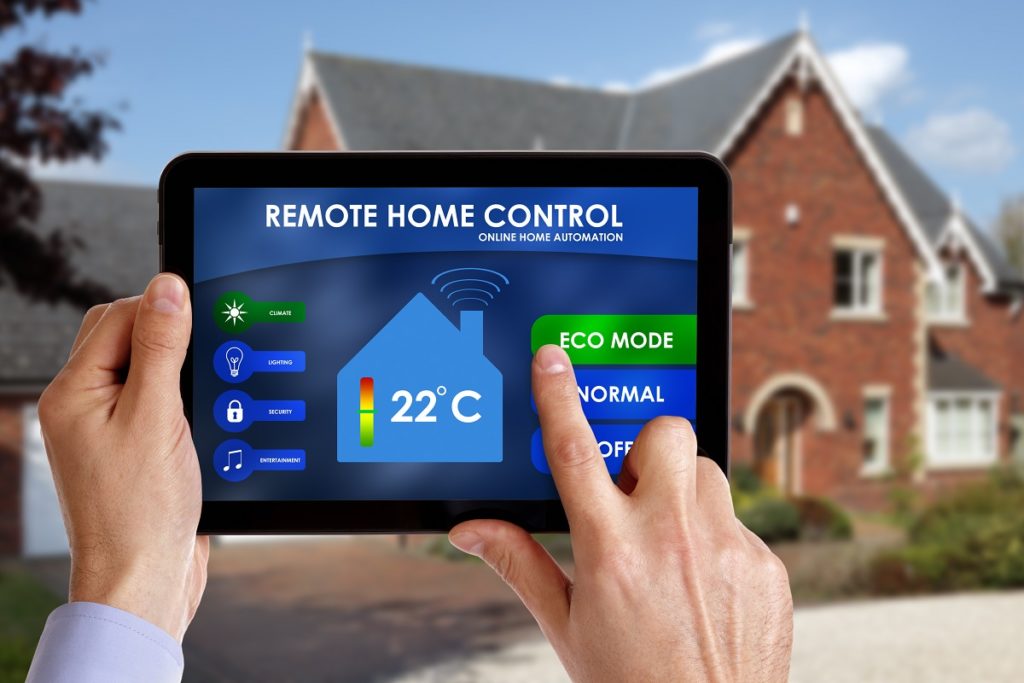At home is where we should all feel safe and secure, and yet, with break-ins and burglaries so rampant, we still can’t help but be wary even when our doors are already locked at night. Not only that, but every time we leave, we get a “mini heart attack” when we suddenly remember an appliance that we might’ve left running at home.
All these uncertainties and unpleasant surprises can now be avoided, thanks to high-tech smart home systems. Your security devices can now be connected to your smartphone, so you can keep tabs on your home even when you’re out. It’s highly beneficial for people on-the-go who have little time to check on their houses before leaving for work.
But what is a smart home, and how exactly does it boost security?
How Smart Homes Work
When you equip your pad with a smart home system, any electronic device in it can be connected to your home network at your command. You can give that command either by voice (e.g. Alexa) remote control, or your tablet or smartphone.
Thus, if you want to turn off the lights, for example, simply issue the command, and your home will dim at once. Your HVAC’s thermostat, door locks, security cameras, and motion sensors, can also be controlled by your commands.
If you don’t wish to automate your entire home, smart homes are a customizable service, so can choose how much or how little to automate. You may begin applying the smart tech only on the tasks you perform daily or regularly, such as checking on your kids or adjusting your HVAC thermostat.
In regard to the costs, it will vary depending on how smart your home is. Sophisticated systems can cost between $10,000 and $25,000. You can spend less by automating your home gradually, starting from a basic lighting system, which may cost you only a few hundred bucks.

How Smart Homes Improve Security
Before smart technology came to be, homeowners and business owners can only rely on CCTVs, which usually provide blurry and pixelized footage. Nowadays, HD security cameras are used, and it continuously uploads footage on the cloud. It has also been integrated into door bells, the footage from which can be seen real-time from a smartphone. The cameras can be equipped with a facial recognition software, immediately alerting you if a stranger is at the door.
Smart technology has also enabled its users to pre-record messages, such as instructions for a delivery service (e.g. where to leave a package). It has also put an end to the days of hiding your keys somewhere discreet as. Simply have a smart lock system installed, and you can open and lock your doors using just a keypad and/or a Bluetooth or Wifi connection. If you wish to make sure that you’ve locked the doors at night or before leaving, just check its status from your phone.
Home maintenance has also been taken up a notch. Smart smoke and CO alarms can send you notifications about their battery statuses, giving you a chance to change their batteries before they go empty. New products that detect leaks and pipe bursts have emerged as well, and they can even shut off the main water valve automatically.
Smart homes are perfect for seniors living alone, too. They can track an elderly’s movements, and alert their loved ones if no movement is detected in a set period. And of course, the elderly may just use voice commands instead of walking around to turn off lights and other electronics.
Such groundbreaking technology may be surrounded by conspiracy theories and criticisms, but only one thing is proven true: smart homes have enhanced security, and will continue to do so. Give it a few years, and perhaps, we’ll be enjoying even more unexpected perks from it.
